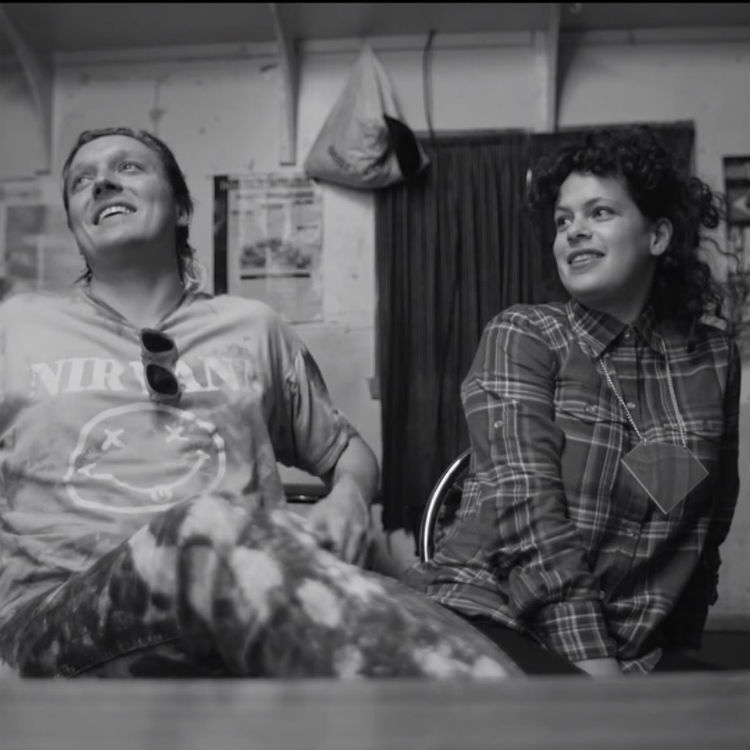 Photo: Alexandra Pollard
Photo: Alexandra Pollard
"National treasure?" smirks Laura Marling as she re-tunes her guitar, more uncomfortable than emboldened by the host’s enthusiastic introduction. “Strong words.”
In the first of a short series of Spotify Sessions this month, which includes Imagine Dragons and James Bay, Marling is here to preview five tracks from her forthcoming album, Short Movie. The title is taken from the words of a shaman she met while living in LA, who would respond to just about everything with, "It’s a short fucking movie, man."
With her bleached blonde hair cropped newly short as part of a "seven-year cycle", Marling spends the entire set belting out her markedly heavier, more guttural songs, stood on tiptoes. The microphone stand is about half a foot too high, and despite the extra height afforded by the aforementioned tiptoes, she still has to stretch her neck to reach it. She fails to fix the problem after the first number, so evidently the strain is on purpose. Perhaps she relishes having to work that little bit harder, reach that little bit further.
Over the course of five albums, Marling’s sound has progressed from straightforward, English-accented folk to darker, Celtic-lilted musings, steeped in mythology. Her performance style, too, has matured. She still avoids eye contact for the most part, preferring instead to stare intensely at the air above the audience, but it now seems to come from a steely determinism rather than anxiety. During the final song, she occasionally opens her mouth widely and sticks her tongue out, as if she’s playing a rock star, and has completely forgotten she has company.
Lyrically, the new album seems to have stripped itself bare. Rather than hiding behind beautiful but obtuse tales of Greek Godesses and literary figures, Marling sings lines such as, “Is it still OK that I don’t know how to be alone?”, and “Who do you think you are? Just a girl who can play guitar.”
Marling’s transformation, as showcased so beautifully here, is not unexpected (many of her idols, from Bob Dylan to Joni Mitchell, have done the same with each album they produce) and nor is it unwelcome. It feels ambitious but organic, as if she’s made a very deliberate decision to explore new pastures while holding onto her sense of self with an ironclad grip.
The new album is more brash and electric than anything Marling has produced before, but she presents it with such emboldened enthusiasm that there’s really no room to begrudge her for it. In fact, it’s quite brilliant.































